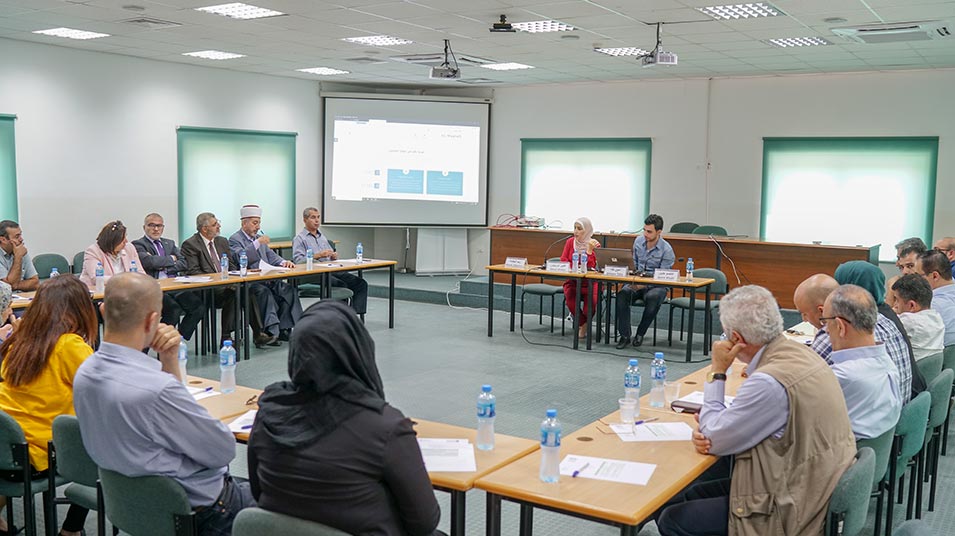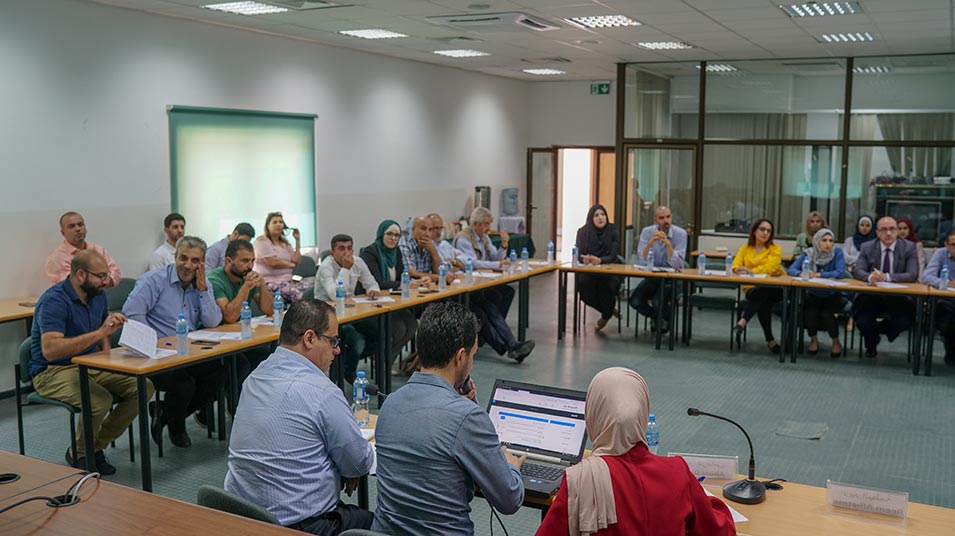Institute of Law staff showcases new legal database features, developments in workshop
Palestinian legal scholars, researchers, and professors discussed the Palestinian Legal and Judicial System (Al-Muqtafi)’s latest updates and changes in a workshop organized by Birzeit University’s Institute of Law on Tuesday, August 27, 2019.
Al-Muqtafi, developed by the Institute of Law’s legal researchers and IT teams, is the first legal databank in Palestine. It includes more than 14,000 pieces of legislation, collated over 150 years of Palestine's contemporary history, and 40,000 judicial judgments issued by Palestinian high courts since 1994.
Al-Muqtafi’s Legislation Database features all items of legislation enforced in Palestine from the mid-1900s onwards, some of which may be based on laws issued under the Ottoman rule until 1917, on legislation from the British Mandate until 1948, on legislation issued under the Egyptian Administration in the Gaza Strip as well as under the Jordanian rule over the West Bank until 1967, and on military orders issued by the Israeli occupation authorities from 1967 onwards. The database also includes recent pieces of legislation, enacted by the Palestinian National Authority since 1994.
Al-Muqtafi furthermore contains the Court Judgments Database with rulings issued by the Palestinian Court of Appeals between 1994 and 2001 and by the Court of Cassation and the High Court of Justice from 2001 until today. Palestinian courts may base their decisions both on laws and precedents.
In his opening remarks, Asem Khalil, Birzeit University’s vice president for community affairs, stressed the university’s commitment to the project, saying that Al-Muqtafi serves Palestinian legal researchers, professors, scholars, students, and the broader Palestinian community.
Praising the efforts of the Institute of Law’s staff members who designed and developed Al-Muqtafi, Khalil noted that the university will support the continued development of the system, with legal content being added and updated regularly.
Khalil also highlighted two objectives that the university and the Institute of Law will work to achieve by the end of the 2019/2020 academic year: introducing a new academic program focused on the intersection of law and information technology, and launching the new version of Al-Muqtafi.
Reem Al-Botmeh, the Institute of Law’s newly appointed director, highlighted the efforts of the institute’s teams in developing and maintaining Al-Muqtafi’s databases, adding that the workshop was the first in a series designed to keep the system’s users abreast of all changes and alterations introduced to the system.
Abeer Derbas, a legal researcher; Ameen Taha, an IT technician; Ahmad Hamo, a systems analyst and developer; and Mohammad Khader, Al-Muqtafi’s team leader, gave overviews of the technical revisions and modifications the teams have introduced to the system, based on feedback they had solicited from stakeholders.
Some of the changes they highlighted include: a new user interface that incorporates suggestions made during stakeholder feedback; graphs that connect related laws, regulations, court decisions, and legal articles; lists that track changes and amendments to laws and regulations; and improved search and filtering capabilities.








